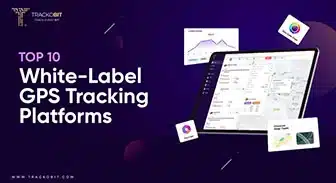-
TrackoBit
Manage commercial vehicles with the new-age Fleet Management Software
TrackoBit -
TrackoField
Streamline your scattered workforce with Field Force Management Software
TrackoField -
Features Resources
-
Blog
Carefully curated articles to update you on industrial trends. -
White Paper
Insightful papers and analysis on essential subject matters. -
Glossary
Explore an alphabetical list of relevant industry terms. -
What’s New
Get TrackoBit & TrackoField monthly updates here. -
Case Study
Explore the cases we solved with our diverse solutions. -
Comparisons
Compare platforms, features, and pricing to find your best fit.
-
About Us
Get to know TrackoBit: our team, ethos, values, and vision. -
Careers
Join the most dynamic cult of coders, creatives and changemakers. -
Tech Support
Learn about our technical support team and services in detail. -
Events
Check out the exhibitions where we left our marks and conquered. -
Contact Us
Connect with us and let us know how we can be of service.
What is Delivery Speed? 6 Ways to Achieve Fast Delivery Speed
- Author:Nandita Gupta
- Read Time:7 min
- Published:
- Last Update: January 7, 2026
Table of Contents
Toggle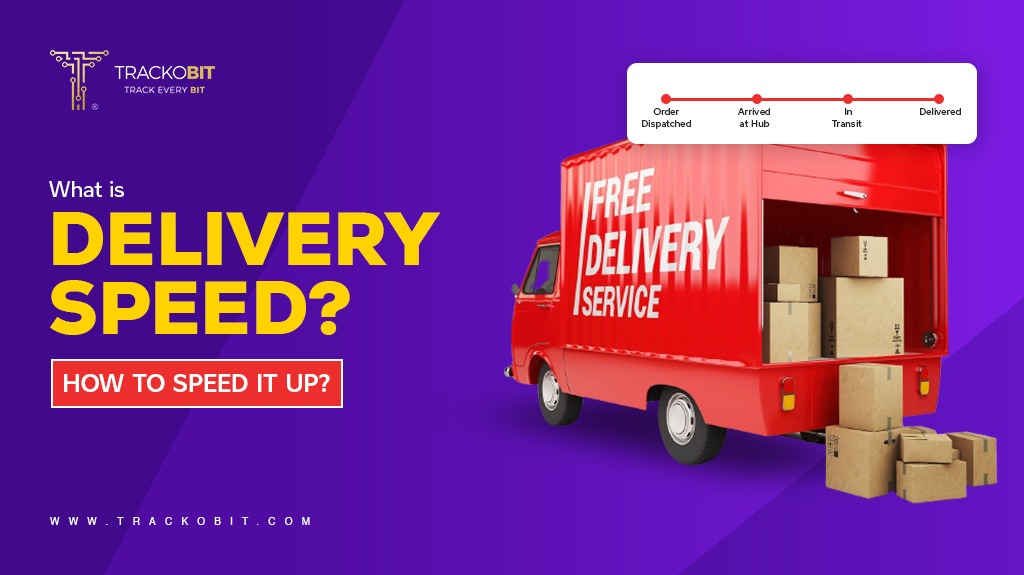
If you are a logistics or delivery business, read these 6 tips that can help 5x grow your delivery speed.
Table of Contents
Toggle
Do you know:
- 43% of consumers prefer their orders to be delivered faster.
- Over 80% of eCommerce customers want same-day shipping.
These are not just mere delivery speed statistics but rather your customers’ expectations. They want their goods to be delivered at the fastest turnaround. All thanks to hyperlocal delivery brands, who have spoiled the customers. Now, we cannot go back. (Just kidding).
Don’t worry; you can still up your game and work on increasing the speed of delivery. Irrespective of the fact that you are a local business or a Pune-based company delivering goods in Aamchi Mumbai.
We are unfolding 6 strategies that can help you achieve lightning-bolt-fast delivery. But before we discuss that, let’s understand what’s the delivery speed and how it’s beneficial for your business and your customers.
Recommended Read: What is Last Mile Delivery? Complete Guide
What is Delivery Speed?
Delivery speed explains how effectively and efficiently goods, services, and information of value are transported from the manufacturing hub/fulfillment center to the point of administration. Its ultimate bottom line is to help businesses:
- Optimise operational efficiency.
- Stay competitive.
- Positively influence customer satisfaction.
Delivery speed is a very important aspect in shipping, cold chain supply, food delivery, or project management.
What is the Importance of Delivery Speed (For Business and Customers)?
💡 For Businesses
High delivery speed is crucial for last mile or on-demand delivery businesses because:
| 1. Customer Satisfaction | Fast delivery enhances customer expectations and experiences. Thus, leading to more repeat customers. |
| 2. Competitive Edge | Businesses with swift deliveries often become trailblazers and set a unique identity for themselves. Just like Blinkit (the speediest delivery partner). |
| 3. Operational Efficiency | High delivery speed is often achieved through an efficient logistics process. This helps reduce costs and improve resource utilisation. |
| 4. Inventory Management | Faster delivery means less inventory, resulting in reduced inventory holding costs. |
| 5. Market Responsiveness | Quick delivery lets businesses adjust their product offerings and move towards more in-demand products. It lets businesses:
|
💡 For Customers
High delivery speed is also crucial for customers because:
| 1. Convenience | Faster delivery makes it convenient for customers to receive goods in less time. |
| 3. Instant Gratification | Quick deliveries offer instant gratification with instant access to products and services. |
| 3. Meeting Urgent Needs | Fast deliveries promptly meet customers’ time-sensitive needs or emergency needs. |
| 4. Enhanced Customer Experience | Prompt delivery inculcates a high degree of satisfaction among customers. |
| 5. Less Anxiety | Faster delivery reduces waiting time, uncertainty, and anxiety around product arrival. |
The benefits of fast delivery speed, inarguably, are what most businesses crave for, so here’s how to achieve them.
6 Ways to Raise Delivery Speed (Notes for Delivery Businesses)
Improving delivery speed lets businesses meet customer expectations spot on and even helps maintain a competitive edge. Here are just 6 ways your business can increase delivery speed:
1. Invest in “Route Optimisation Software”
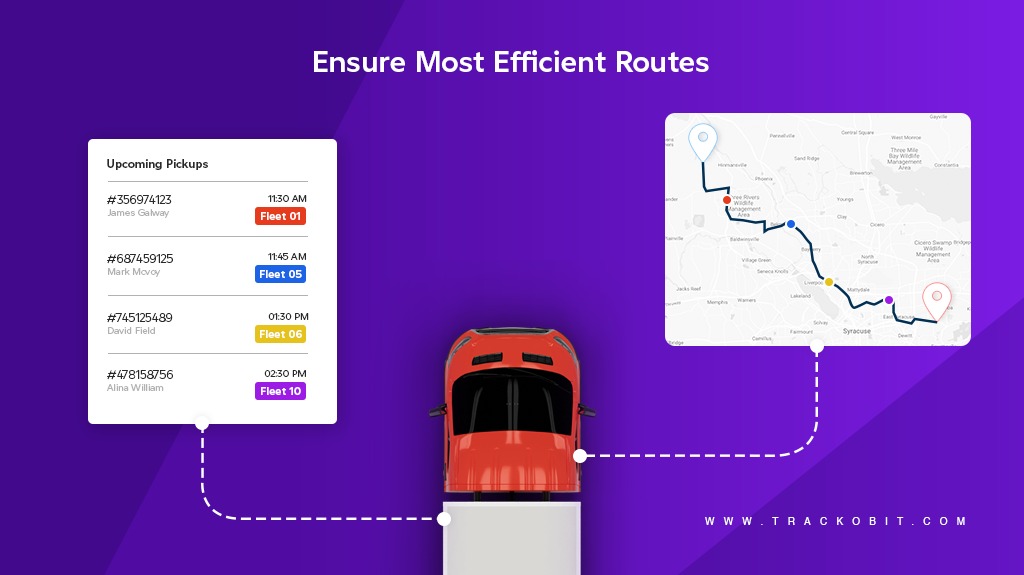
Investing in route optimising software helps plan optimal delivery routes that are time and fuel-saving. Very useful for delivery or logistics businesses with a large fleet of vehicles.
Route optimisation leverages advanced algorithms and rule engines to determine time-efficient routes. TrackoMile’s automation-drivenroute optimization software suggests the most optimal routes by evaluating over 120+ variables like traffic, distance, weather conditions, delivery time slots, road restrictions, capacity, etc.
The best part, it even helps you determine the most optimal trip sequence and plan stops for delivery vehicles. Great way to achieve fast delivery.
| ❌Don’t Plan Delivery Route with Free Mapping Tools
Free mapping tools like Google Maps or Waze may look very tempting to use but aren’t viable for large delivery businesses. Use them only when you have 1-2 delivery vehicles, performing 5-6 deliveries in a day. We assume you have over 100 vehicles, attempting 1000+ deliveries in a day. If that’s the right guess, then you need TrackoMile’s advanced last mile software with a route planning algorithm. |
2. Fix Loopholes in the Supply Chain
If you haven’t sat down yet to analyse your supply chain processes — then do it today. Maybe it’s your supply process that’s flawed and hampering your speed of delivery. Right from picking and aligning inventory to the packing and delivery process – look for gaps.
Identify weaknesses, implement the right technology, maintain strong vendor relationships, optimise inventory management, and deeply monitor performance. More than that, continuous improvement, data analysis, and staying flexible to market needs can help you form a robust supply chain. To ultimately improve delivery speed.
3. Streamline Inventory Management
As a delivery business, make sure to implement just-in-time inventory practices to avoid excess inventory and storage costs. Have optimal stock levels and avoid overstocking. Make sure to:
- Track stock levels.
- Optimise ordering and replenishment processes.
- Minimise carrying costs (by eliminating wasteful processes)
- Ensure sufficient availability of products when needed.
Effective inventory management would not just prevent stockouts and reduce inventory costs but will help you meet customers’ delivery demands head-on.
Read Blog – Role of ETA in Supply Chain!
4. Choose Reliable Delivery Partners & Carriers
Research and connect with reliable shipping carriers and courier partners who offer fast and cost-effective services. Discuss the average shipping time and complete the delivery process even before signing the service level agreements. Such choices can help you improve delivery speed.
Connect with partners who offer multiple shipping options to aid in your desired speed of delivery.
Customers love it when brands offer them multiple delivery options. If you consider giving them delivery options of one-hour delivery or same-day delivery in advance, they will know what to expect.
You can set up express, standard, and economy shipping methods — based on the type of goods. Customers can easily pick the one that suits their needs and budget.
Recommended: Top 8 Hyperlocal Delivery Companies – Best Partners
5. Go Big on Cross-Docking & Drop Shipping
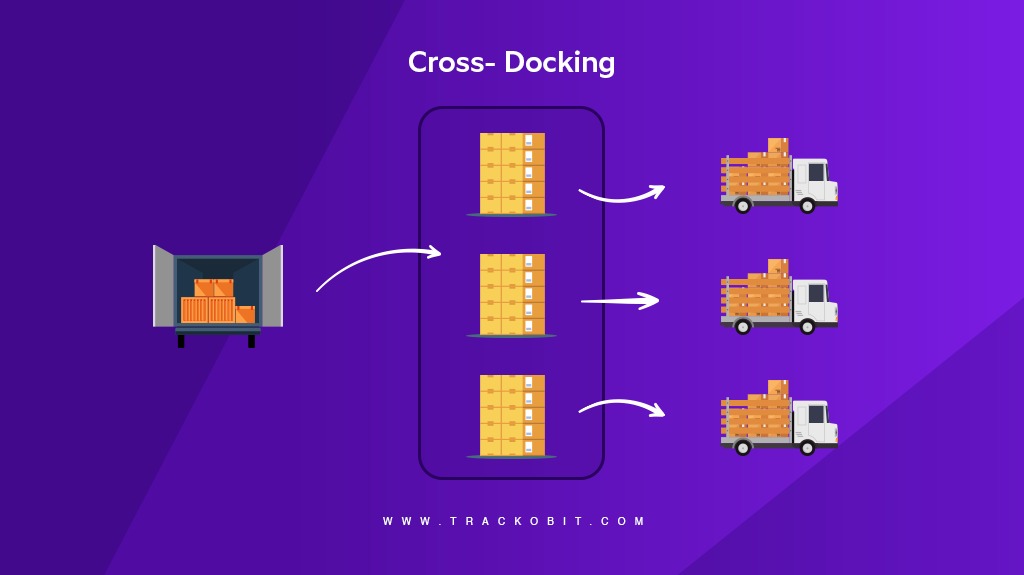
Investing in cross-docking facilities can help boost delivery speed. In cross-docking, you receive products from suppliers’ warehouses and further ship them directly to customers without storing them. Drop shipping is a similar concept, where you just list the products on a website and act as a mediator between the seller and the buyer, you don’t hold onto any inventory.
As a result, you save on:
- Storage costs
- Handling time
Cross-docking increases delivery speed as it removes the process of long-term storage. You send the incoming goods directly to the delivery destination and enable a more quick and efficient supply chain.
This method will depend on the nature of your business.
Recommended Read: What’s Direct-Store Delivery (DSD)? Why Is It Crucial?
6. Hail Predictive Data Analytics
As a business, make it a habit to collect and analyze data on your customer’s feedback, delivery performance, time of order processing, and dispatching. All these kinds of information will help you identify gaps and help think of some corrective measures to optimize the delivery process.
Many big e-commerce and logistics brands go for the very buzzing “lean principles theory”. The theory suggests that one should eliminate wasteful processes and think of optimising them. Thus, look through every thick and thin to identify the problem areas and work towards rectifying it.
Last But Important…
Don’t raise the speed of delivery at the cost of forgoing quality and accuracy. Maintain a balance between speedy delivery and quality deliverables. It will take some time, but you will get there.
How Fast Should Be the Delivery Speed? Industry-Wise
There is no fixed delivery time. It varies according to the types of goods, services, customers’ expectations, logistics process, etc. However, here are general guidelines that various industries revolve around:
| 🍲 Food Delivery |
|
| 🚚 E-commerce and Retail | E-commerce companies go for a range of delivery options, like:
The speed of the process is often dependent on the customer’s preferences & willingness to pay extra for fast delivery. |
| 📦 Package & Parcel Delivery | Delivery partners like FedEx, DHL & UPS go for the following delivery types:
Here the delivery speed depends on the customers’ urgency and the recipient & shippers’ budget. |
| 💊💉 Specialty Items |
|
| ⛵International shipments |
|
| 🕴️ B2B Deliveries |
|
Read Blog – Food Delivery Trends to Watch in 2026 & Beyond!
🔎 Key Takeaway
The right delivery speed is a constant battle of balancing customer expectations while managing operational costs. Businesses should consider factors like shipping costs, customer preferences, competition, and the nature of the products or services when determining their delivery speed options.
Customer feedback and market research can help determine the appropriate delivery speed for a specific business and its target audience.
FAQs on Delivery Speed
-
What affects delivery speed?
Delivery speed is often affected by factors like distance, weather, mode of transportation, order processing time, and logistics efficiency.
-
Why is speedy delivery so important?
Speedy delivery is important to retain customer satisfaction and reduce inventory holding costs for businesses while maintaining their competitive edge.
-
Difference between same-day delivery and overnight delivery.
Same-day delivery is when goods/services reach the administration point within a few hours or before the same-day ends. Overnight delivery means that customers will receive their products maximum by the next day.
-
How is shipping speed calculated?
The total time is calculated by summing up handling time and transit time — all the way from ship-from location(s) to the customer's approximate location.
Nandita is the Team Lead for Content Marketing at TrackoBit, bringing over a decade of experience in B2B, B2C, and IoT sectors. She has a proven track record of helping Read More
Related Blogs
-
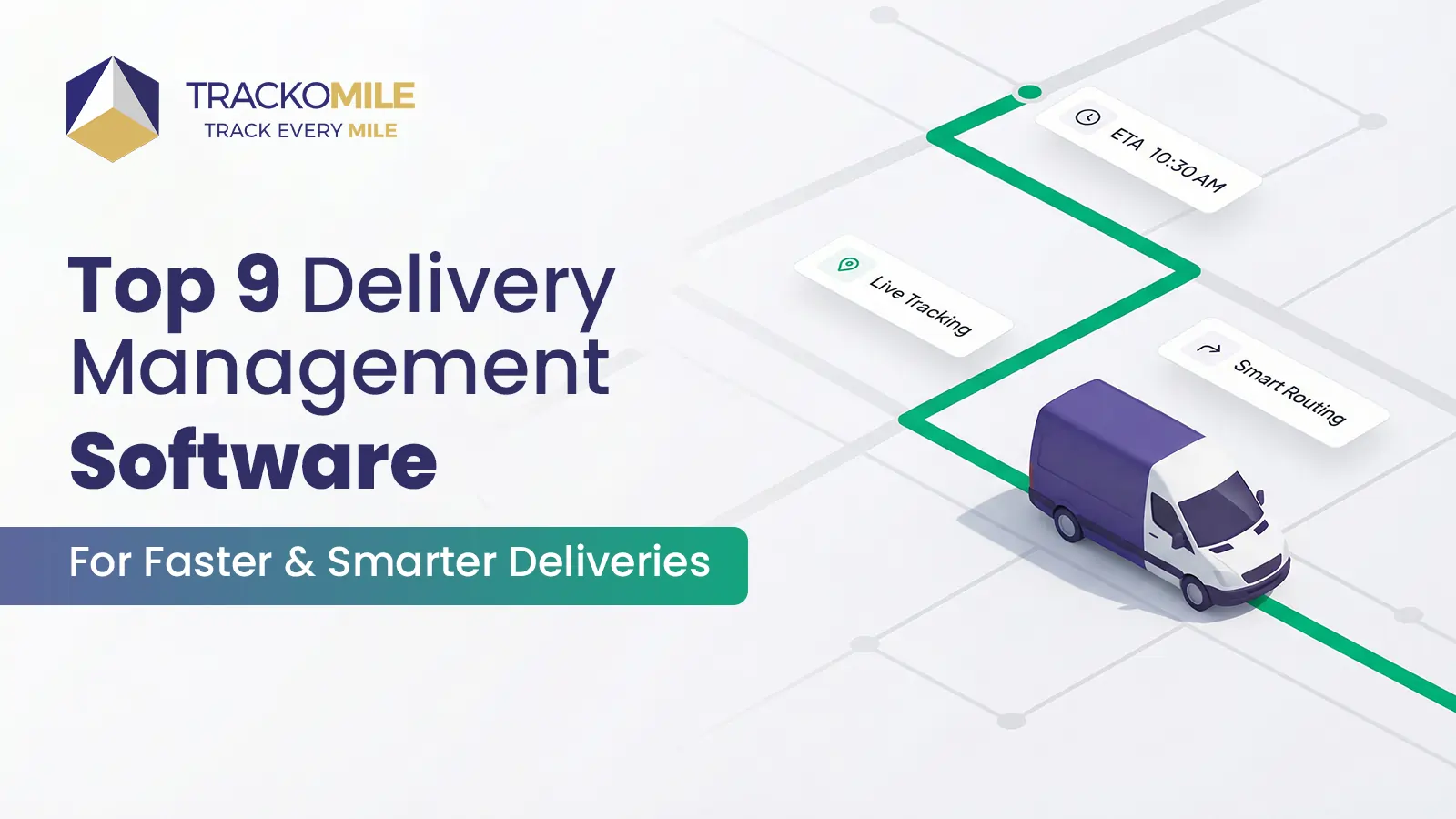
Top 9 Delivery Management Software in 2026
Tithi Agarwal February 2, 2026By choosing the best delivery management software, companies can benefit from features like route optimization, dispatch management, and more. This…
-
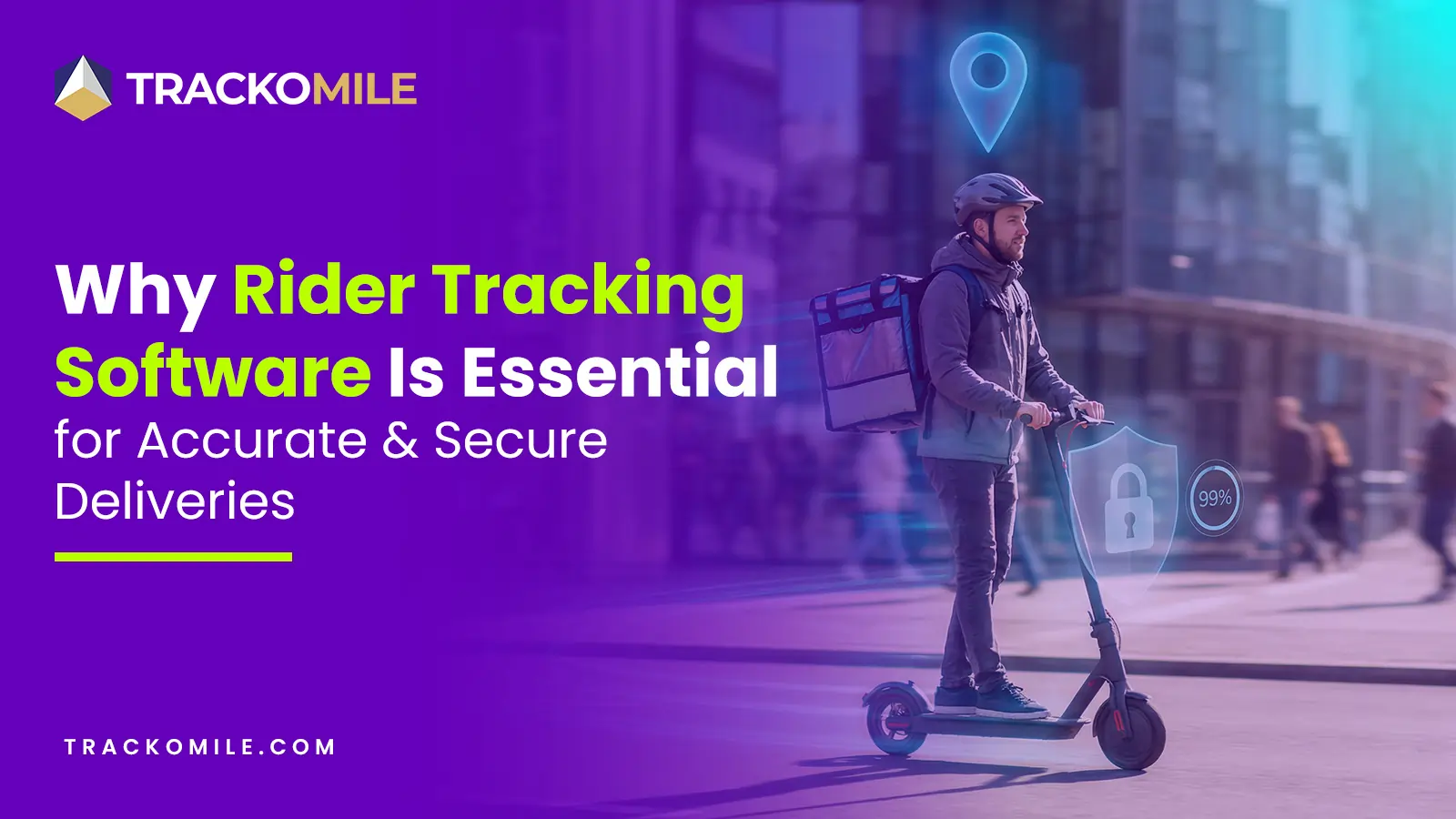
How Rider Tracking Software Improves Delivery Accuracy and Reduces Fraud
Tithi Agarwal December 8, 2025Rider tracking software improves delivery accuracy with real-time GPS visibility and automated ePOD. It also enables route optimisation and fraud…
-
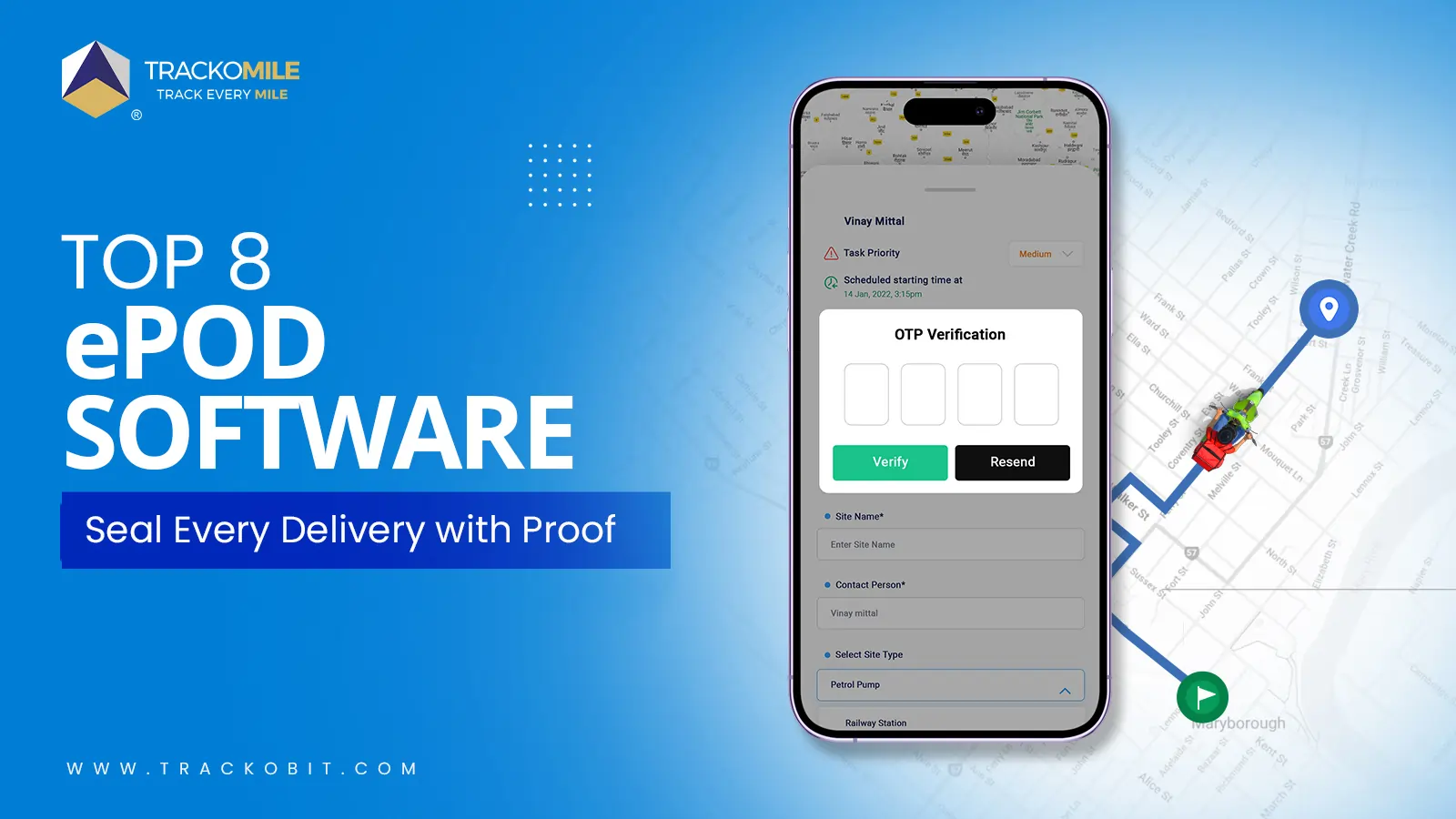
Top Electronic Proof of Delivery (ePOD) Software in 2026
Tithi Agarwal September 25, 2025Electronic proof of delivery has become the backbone of modern logistics. Explore the top 8 ePOD software in 2026 and…
-
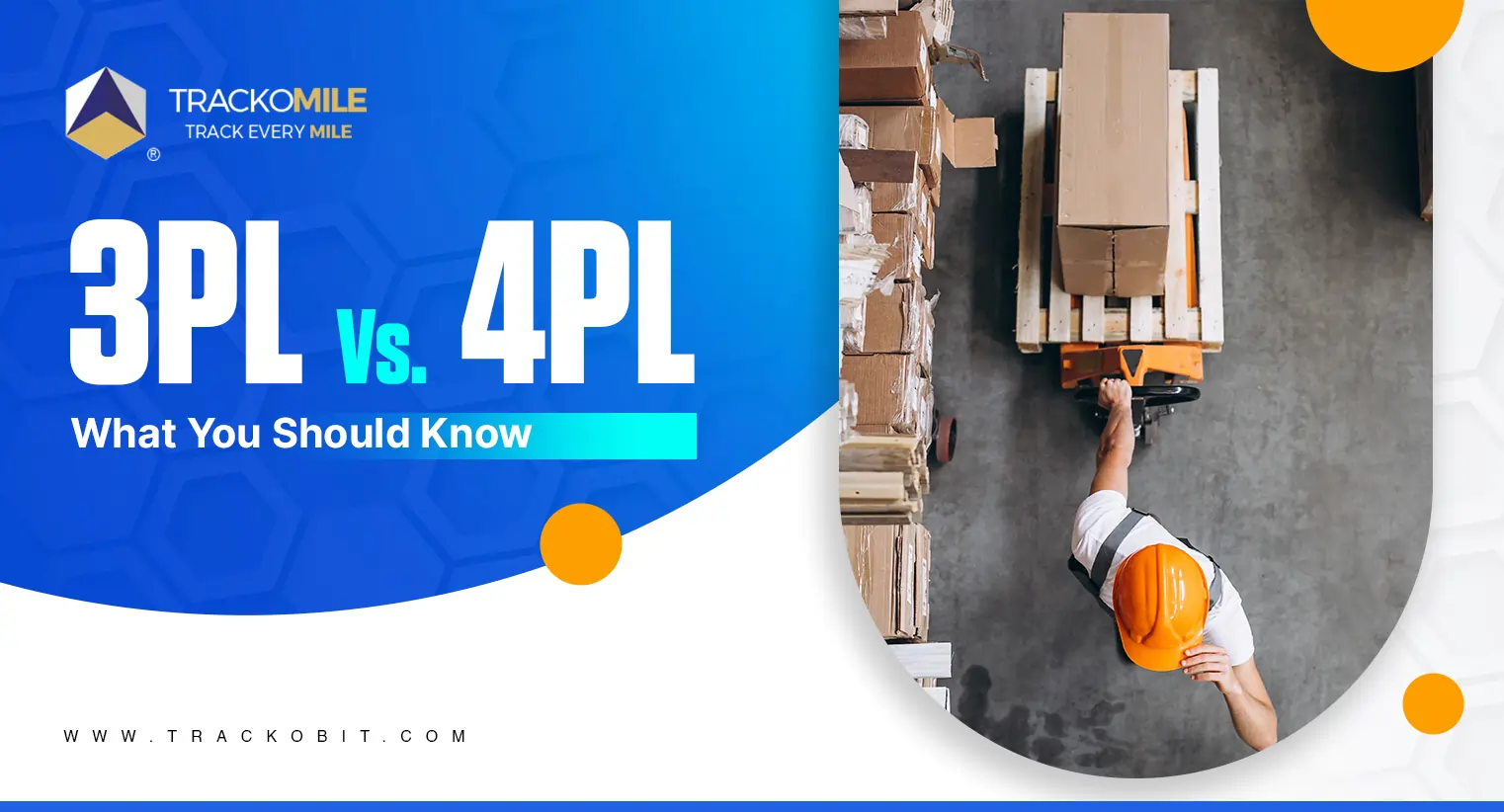
3PL vs. 4PL: Which is Best for Your Business?
Tithi Agarwal September 25, 2024Confused about choosing between 3PL and 4PL for your retail supply chain? Read this blog to find out which is…

Subscribe for weekly tips to supercharge your last-mile delivery.
Your inbox awaits a welcome email. Stay tuned for the latest blog updates & expert insights.
"While you're here, dive into some more reads or grab quick bites from our social platforms!"Stay Updated on tech, telematics and mobility. Don't miss out on the latest in the industry.
We use cookies to enhance and personalize your browsing experience. By continuing to use our website, you agree to our Privacy Policy.



































